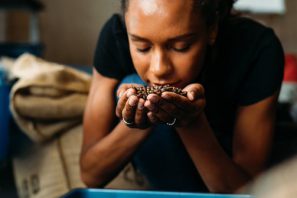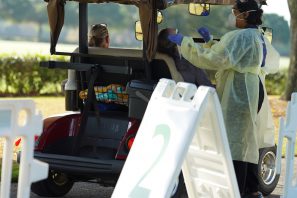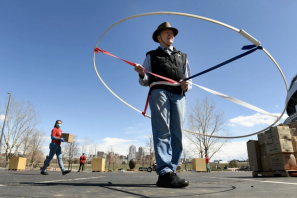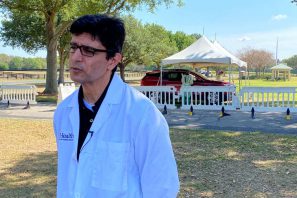UF social psychologist says being at home at a time of social distancing can set in a feeling of boredom
All
Health
The director of the University of Florida’s Center for Smell and Taste and the co-director of the UF Health Smell Disorders Program answer questions about this emerging trend.
A mathematical modeling group including investigators from the UF Center for Statistics and Quantitative Infections Diseases worked with the World Health Organization and Florida Department of Health on modeling the pandemic globally.
Longini's suggestion that US deaths could peak in less than a month will have two possible impacts.
“It’s probably going to just continue to rise exponentially for a couple of weeks,” said Ira Longini, co-director of the Center for Statistics and Quantitative Infectious Diseases at the Emerging Pathogens Institute of the University of Florida.
John Smulian, chair of the UF College of Medicine’s department of obstetrics and gynecology, provides important information on what is known about the novel coronavirus and pregnancy.
"We're trying to figure out who is ill or who has had significant exposure, and then keep them from getting around other folks," Haley said.
Lisa Merlo Greene, director of wellness programs at the University of Florida College of Medicine, offers tools to maintain wellness during a time of uncertainty.
“By the time someone arrives at the hospital and is severely ill, you can assume they were infected two to three weeks ago,” said Natalie Dean, a biostatistician at the University of Florida.
"There’s a lot that we don’t know, but we’re trying to get that information and see if it can inform policy as we move ahead," Lauzardo said.
"The most important question we're trying to determine is how any people have the virus but are showing no symptoms at all," Dr. Michael Lauzardo, an infectious disease specialist at the University of Florida said.
“Here in Florida we have the largest number of people in any state over 70, so that’s of particular concern for us,” Lednicky said.











